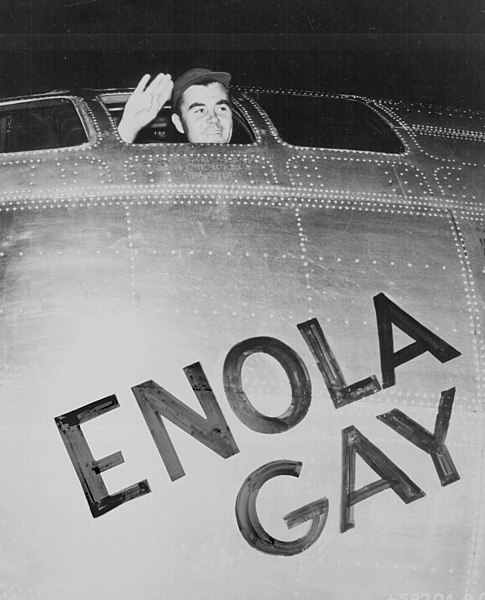Today marks the 72nd anniversary of the first use of an atomic bomb. It was dropped over Hiroshima, Japan, by a B-29 bomber, the Enola Gay, under the command of Col. Paul Tibbets. The crew may have had suspicions about their mission beforehand but Tibbets let them know only after the bomb had been armed a mere hour from its target.
Tibbets was alerted to the blast by radioactivity tingling in his teeth and the metallic taste from electrolysis on his tongue. Ten and a half miles away, many thousands had already vanished. A massive firestorm would grip the city within minutes and kills thousands more.
The decision to drop the bomb on Hiroshima - and Nagasaki three days later - was a difficult and controversial one that assuredly brought a very quick end to the war with Japan and in the eyes of most historians and military experts saved the lives of millions of combatants and civilians. The controversy is still with us. For more on this historic event and its aftermath readers should visit this fascinating Harry S. Truman Library and Museum archive of primary sources relating to the story.

Tibbets waves from the cockpit prior to takeoff |
|
Sources
Photos and Illustrations:
Hiroshima aftermath, U.S. Navy Public Affairs Website, chinfo.navy.mil
Enola Gay photo, National Archives and Records Service
Text:
wikipedia.com



No comments:
Post a Comment